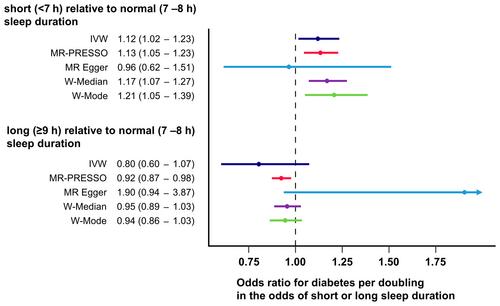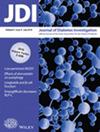Investigating the non-linear association between sleep duration and type 2 diabetes: conventional and Mendelian randomization analyses from the UK Biobank
Abstract
Aims/Introduction
Previous observational studies have suggested an increased risk of type 2 diabetes associated with both short and long sleep duration. However, there remains uncertainty, particularly regarding the adverse effects of long sleep duration. We investigated the association between self-reported questionnaire-based and objectively measured accelerometer-derived sleep duration and the risk of type 2 diabetes using data from the UK Biobank.
Materials and Methods
First, we performed conventional Cox regression analysis with restricted cubic splines to illustrate the potentially non-linear association between sleep duration and the risk of type 2 diabetes. Second, we performed non-linear Mendelian randomization (MR) analysis using the doubly-ranked method with 85 and 20 genetic variants associated with questionnaire-based and accelerometer-based sleep duration, respectively. Third, we performed two-sample MR analysis.
Results
The results of conventional analysis of accelerometer-derived sleep duration did not suggest a strong association between longer sleep duration and type 2 diabetes risk (hazard ratio [HR] of ≥10 h compared with 7–8 h, 1.08; 95% confidence interval [CI], 0.92–1.27). The results of non-linear MR showed no strong evidence for an increased risk of type 2 diabetes associated with questionnaire-based longer sleep duration (HR of 9 h compared with 7 h, 0.77; 95% CI, 0.52–1.15). This finding was consistent with non-linear MR of accelerometer-derived sleep duration (HR of 9 h compared with 7 h, 0.78; 95% CI, 0.29–2.06).
Conclusions
Our findings suggest that longer sleep duration does not play a major role in the development of type 2 diabetes.


 求助内容:
求助内容: 应助结果提醒方式:
应助结果提醒方式:


